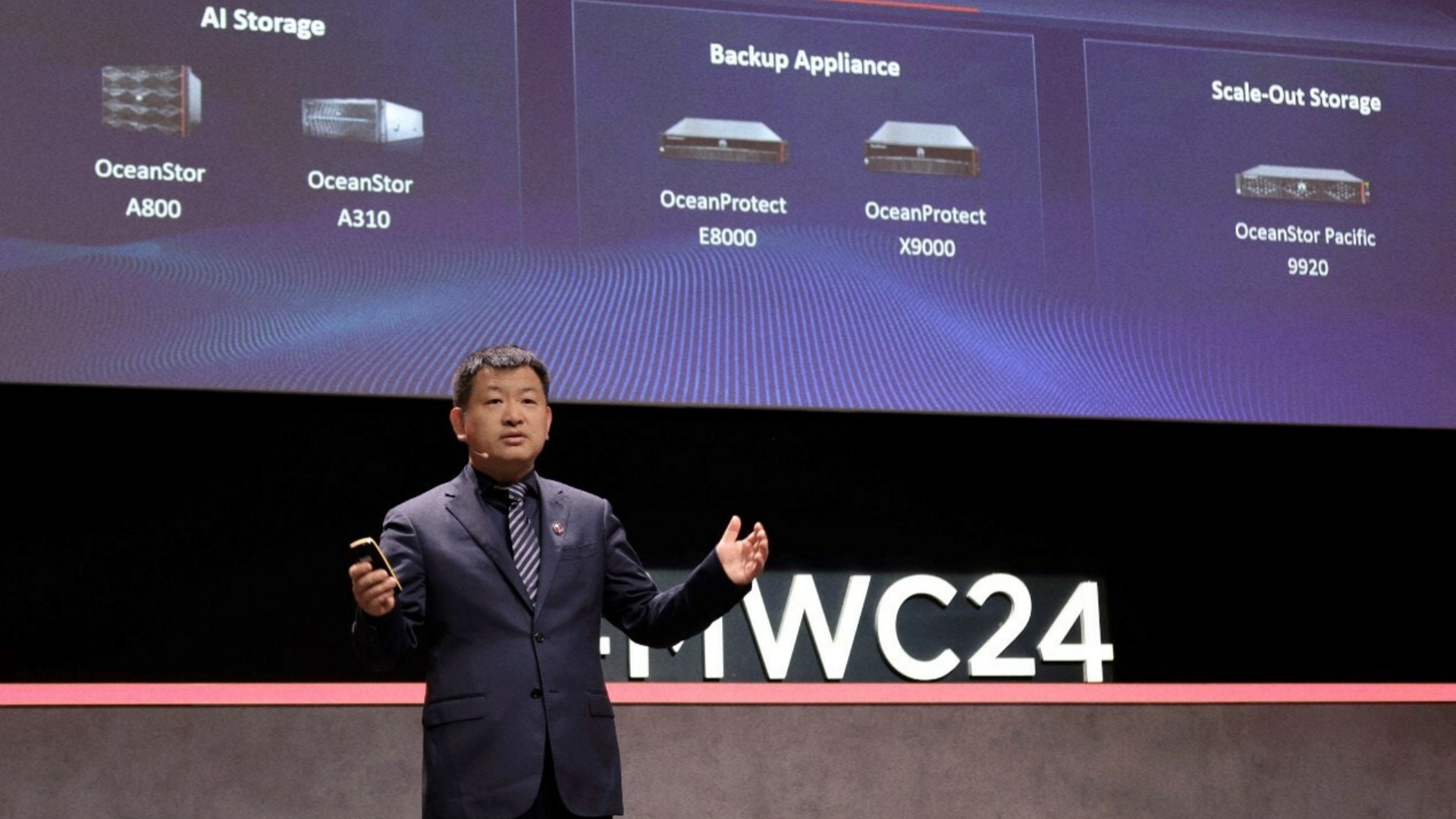Artificial intelligence (AI) has been nigh inescapable of late, with every industry and vertical looking at how best to leverage the technology and extract some sort of value. At this year’s Mobile World Congress (MWC), AI was a key focus for many too, including Huawei Technologies, which debuted three new data storage solutions designed with the AI era in mind.
The Chinese outfit explained that the rapid pace at which the development of large AI models has taken place is hard to avoid, especially as it is seen as unleashing the value of data assets and “paving the way for an era of data awakening,” according to Huawei.
AI brings its challenges
That said, there are still two major challenges in data infrastructure construction that the AI era brings.
“First, to extract knowledge from data, independent and scattered data sources must be aggregated in AI data factories to mine value from the data. This sets high requirements for data mobility. Second, data assetization is growing at a rapid pace. The average retention time of annotated AI data and model data is now more than three years, and some valuable corpus data needs to be permanently stored,” the company highlighted in a release shared with Hypertext.
To address this, the three new data storage solutions are:
- An AI data lake solution for transferring mass data to valuable assets;
- All-scenario data protection solution for data production, backup, and archiving that boosts the resilience of data assets;
- And a DCS full-stack data centre solution for helping carriers achieve higher IT service efficiency and agility.
As for how this will play out in a modern data centre environment, Huawei has emphasised Flash-to-Flash-to-Anything (F2F2X) as its infrastructure architecture of choice for the AI era.
Here the company also debuted a pair of solutions under its Oceanstor lineup.
“Our framework for the AI area is that you can see we are using the F2F2X framework to empower the AI era,” highlighted Michael Phan, Huawei’s marketing VP for IT.
“The first flash is for the primary data infrastructure. It includes the Dorado series, the Oceanstor Pacific series, and our latest, the AI storage, it’s called AI data lake. The product is called A800. And the second flash is the backup. It’s called the OceanProtect Backup storage. It provides 3 times faster backup speed than the industry standard, and 5 times faster recovery speed,” he continued during a data storage roundtable at MWC.
What about Africa?
Looking at data storage within the African context, where an estimated 35 of the 54 countries on the continent have implemented or outlined data protection laws, which in turn raises more questions about the proliferation of AI.
To that end, Huawei is emphasising the importance of collaboration and potentially putting a unified standard in place for the region, much like there is with GDPR in the European Union, but it is also aware of the fact that there is a degree of complexity that comes with this.
“When Africa does digitalization right now, they can instantly improve the laws, which is good, saving you investment. But regulations, these are very important for us. There’s two aspects to those kinds of jobs we are doing. First of all, we are actively joining the discussion in many international standardization teams to make contributions on our knowledge and experience on how those views, and also regulations, standardizations for security or data protection,” noted Phan.
“Generally speaking, different countries try to prevent the data going outside those particular countries. Normally, the data generated in this particular country will be kept there and not going outside without any permit. So I think that’s happening everywhere right now. And I think somehow it is good. It means you can have data protection. You could have privacy. On the other hand, I think what we need to understand that within one country, we also need to support data mobility within the company or between the companies with permission and to allow data to unleash more value. That’s something that is also needed,” he emphasised.
Muck like every other industry at the moment, AI is bringing an equally exciting and disruptive effect, and in the case of data storage, new solutions will need to be created in order to effectively cope.
[Image – PR Newswire]

